More than 700,000 children live in state-run institutions in Russia and Ukraine. Many go to bed hungry, never see the inside of a classroom and endure abuse, neglect, and deprivation. Approximately 8,000 Jewish children are orphaned and homeless throughout the former Soviet Union.
It was a bitterly cold day in January, 2006, in the Southern-Ukrainian city of Odessa. Six inches of snow lay on the ground. Harsh coastal winds from the Black Sea swept through the city. Alex Shevchenko, a middle-aged local landlord, approached the door of his rental apartment to collect a long overdue rent check. He had been trying unsuccessfully to contact his tenant for weeks, and was about to knock when he heard crying and whimpering coming from inside. After multiple calls at the door went unanswered, he entered the apartment to find a delirious eight-year-old boy, Vitaliy, and an 18-month-old girl, Anya, both shaking with fever. There was no heat in the unfurnished apartment, no food in the refrigerator, and no adult in sight.
Shevchenko rushed the children to the nearest hospital where they were treated for pneumonia and severe malnourishment. The only thing authorities investigating their circumstances learned was that two years earlier, Vitaliy was enrolled in Chabad’s Or Avner, a Chabad school in Odessa. With that lead, officers contacted local Chabad representatives who identified the boy and provided documentation showing he was indeed registered at the school but barely attended. According to Mrs. Chaya Wolff, co-director of Chabad of Odessa who was called in that night, Vitaliy and Anya’s mother had rented the apartment two months prior to the children’s discovery, where she then abandoned them. An older, independent sister of the two youngsters had pity on the children and occasionally brought some food to the apartment, enabling them to survive.
Once they had sufficiently recovered, Wolff took the two children home to live in Odessa’s Chabad-run Mishpacha orphanage for Jewish children. “They had nowhere to go. For six months we took care of them, until the government gave up the search for their parents and finally granted us guardianship,” Wolff says.
They have lived in the orphanage ever since.
The “Orphan” Phenomenon
In the industrialized world, a child without either of his or her parents is classified as an orphan. But in Russian and Ukrainian orphanages and foster care, most of the children have at least one living parent. While “true” orphans still exist, the majority of the children are “social” orphans, living with abusive or neglectful caretakers, or families too poor to provide them with basic care.
Jewish families have not escaped the high rate of unemployment and poverty ravaging the former Soviet Union. Chabad orphanage directors speak of marriages dissolving over financial strain, leaving children in single-parent households without means. Many parents turn to alcohol or drugs; some end up institutionalized or in prison. In the absence of social safety nets, children invariably suffer collateral damage, and are often abandoned out of sheer desperation. Adoption is rarely an option. Unwanted children are institutionalized and nominally educated. At age 18, they are released to the streets without the requisite skills, nurturing, or wherewithal to build a future.
Children’s rights activists report that children in government orphanages in the former Soviet Union often lack access to basic health care, adequate nutrition, attention, and opportunities for play. Many receive little to no formal education. Alarming statistics show that in these parts of the world, 70% of all boys who age out of state orphanages take to a life of crime, 60% of girls go into prostitution and 15% of all children released from state orphanages commit suicide.
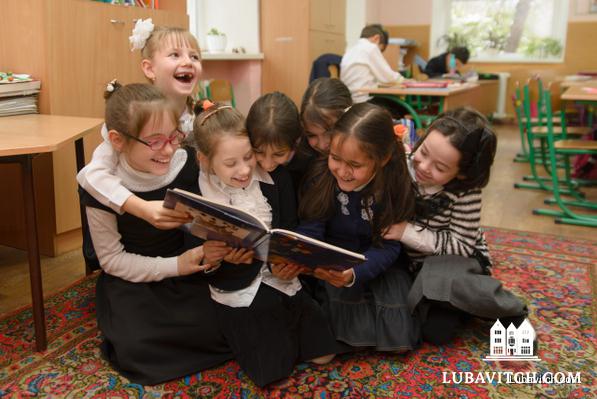
Chaya and her husband, Chief Rabbi of Odessa Rabbi Avraham Wolff, were introduced to the disturbing phenomenon in the summer of 2001 when an old Jewish woman walked into the Chabad synagogue with her two young grandchildren. Her son-in-law had killed her daughter, the children’s mother, the night before. The 70-year-old grandmother, living in a single bedroom apartment with no income, knew she did not have the means to take care of the young children. With nowhere else to turn, she approached Rabbi Wolff and said, “I leave them to you. I have faith in you.”
The Wolffs sought help. They recruited the services of nannies, physicians, nurses, psychologists and psychiatrists to provide the children with the best possible care. Word quickly spread, and soon, other children in dire need of care were brought to the Wolffs. The Chabad couple was soon deluged with children in crisis, among them young victims of sexual abuse and alcoholism.
“When we started, we did not think it would grow to such a size. We were astonished at the tremendous need,” says Chaya. Today, over 80 Jewish orphans live and learn at Mishpacha, Chabad of Odessa’s orphanage. Though intake has stabilized in the last three years, Mishpacha’s population grows by about 6% every year.
A Critical Alternative
Anya, who is now 11, is mentally disabled and suffers from many developmental delays. It is unclear whether she was born with disabilities or if they were caused by the severe neglect of her youth, but the orphanage often sees children with disabilities who are abandoned as babies. Nearly 30 percent of all children with disabilities in the former Soviet Union live in state orphanages, where they face appalling conditions. A report by an international children’s advocacy organization noted that of 10 countries surveyed, Russia had the highest rate of children living in institutional care, and that rate is growing by about 6,000 newborns every year due to the rising number of parents who “refuse” their children in the maternity ward, typically because of disabilities.
With the personalized care Mishpacha provided her, Anya reached developmental milestones far beyond what doctors had predicted. Happy to speak about the girl’s cute quirks and ebullient personality, Chaya hates to think of what would have happened to Anya had she ended up in a government facility.
Mishpacha is one of four residential and educational complexes under the auspices of Chabad-Lubavitch dotting the Ukrainian and Russian landscape. With separate dorms for boys and girls, the four orphanages currently care for more than 350 children, from newborns to age seventeen. The home-style orphanages act as an essential alternative to clinical state-run institutions but are very difficult to set up. Mrs. Malki Bukiet, who directs Alumim, a large Chabad orphanage in Zhitomir, recalled the difficulties entailed in setting up a legal orphanage and the miles of red tape she and her colleagues had to navigate as they chased down special permits and licenses.

Some of the orphanages are considered group foster homes, while the one in Odessa is recognized by the government as an “educational institution supported by the community.” Once the Chabad orphanages were set up, some state institutions were eager to relinquish their Jewish children back into the Jewish community’s hands. At Alumim in Zhitomir, communication with regional welfare offices and government orphanage directors throughout Western Ukraine led to the discovery and placement of over eighty Jewish children. Bukiet says that forty percent were transferred from government homes; twenty-five percent are orphans who were living with family members; and “the remainder came from abusive homes where they suffered terrible exploitation, neglect, or starvation.”
When a Jewish child does become a ward of the state, it becomes incredibly difficult to extricate him or her from the system, often because it is hard to know that they are Jewish at all. Anti-discrimination laws forbid documenting nationality on government-issued documents, so orphanage directors work urgently to rescue the children before they are consigned to the state system “where they can be lost forever.”
Bringing The Children In
Eleven-year-old Elosha grew up in a tiny backwater an hour outside of the Zhitomir Oblast, or region. Like many Jewish children in rural corners of the former Soviet Union, he and his eight-year-old brother, David, spent the initial years of their young lives barely surviving in material poverty, with no idea of their connection to Jews or Judaism. Orphaned at a young age and raised by their grandmother, who also cared for her own aging mother, the boys didn’t know that life existed outside their town, where they still drew their drinking water from a well. In 2009, a few dedicated rescue aid volunteers arrived in search of impoverished Jewish families in rural towns. Elosha and David were transferred to Alumim in Zhitomir, where they encountered running water and a computer screen for the first time.
Zhitomir’s orphanage was specifically built to meet the needs of the children living in poverty in nearby rural villages. The local Jewish population traces its roots to the Pale of Settlement, and the geographic region was once a thriving hub of Jewish shtetls. To this day, almost every town or village has some Jews, most of whom have no affiliation with Jewish life. Chabad of Zhitomir employs a team of four full time staff who are engaged in a constant search mission for Jewish children in need.
“These children don’t even know there is a chance for a better life,” says Bukiet. “We have to go one by one to rescue them and explain their options.” Alumim staff help each family or legal guardian understand that placing their child in the orphanage may be his or her best chance for a better life, and guide them through the sometimes complicated process of transferring legal care of the child to the children’s home. This lengthy process is repeated with every Jewish child.
In bigger cities, the challenges differ, as children on the street are drawn to crime and drugs. In Dnepropetrovsk, Ukraine, which boasts a thriving Jewish community of 50,000 led by Rabbi Shmuel Kaminezki, children on society’s fringes were falling prey to gangs and street-life. After encountering some Jewish children on a street corner begging for food, Rabbi Yosef Glick, who runs two Chabad orphanages in the city hired specially trained teams of social workers to take to the streets on night patrol, with food, information and an open invitation to live in a safe and caring environment. The effort is funded by Tzivos Hashem, a Chabad Brooklyn-based children’s organization.
When he arrived in Dnepropetrovsk twenty years ago, Glick thought he was coming to teach in the fledgling Jewish school. “I was a rabbi,” he recalls. “I was coming to teach Torah and take care of people’s spiritual needs. But when you are trying to teach a child Alef-Bet, and that child has no shoes, or you’re discussing an upcoming holiday and the child can’t concentrate because he didn’t eat in two days or he is going home to abuse, your priorities quickly change.”
“,”
A Challenging Transition
Raised by a warm and dedicated staff, the children in Chabad’s orphanages are offered comprehensive services to meet their physical, emotional and educational needs. The youngest babies live in beautifully furnished nurseries and are cared for by professional nannies. The older children are fully integrated into the local community, attend local Jewish schools, benefit from personalized homework help and dozens of extracurricular afterschool activities. Every day, the 80 boys and girls living in Odessa’s Mishpacha orphanages join 620 local Jewish children in Chabad’s schools.
“They learn together with my own children,” says Chaya, a mother of eight. The administration is sensitive to ensuring that the children don’t feel different from the others. “I know each one of these kids on an individual basis. I feel personally responsible to care for their needs and give them a chance at a better future.”
But the obstacles in the way towards that future can be daunting. The children often have difficulty adjusting to their “new world.” Some refuse to interact. Others act out, not understanding where they are or what is happening. “Our staff is ready for it. We have psychologists who works closely with us and make individual adjustment plans for each child,” says Chaya. Children eventually transition successfully, even if it takes as much as six months.
One 9-year-old boy who arrived in Odessa severely malnourished could not hold food down. The orphanage placed him under the care of a physician. “It took us two full months to help him regain normal eating habits,” recalls Chaya. “And this was a boy who came from a home with parents.”
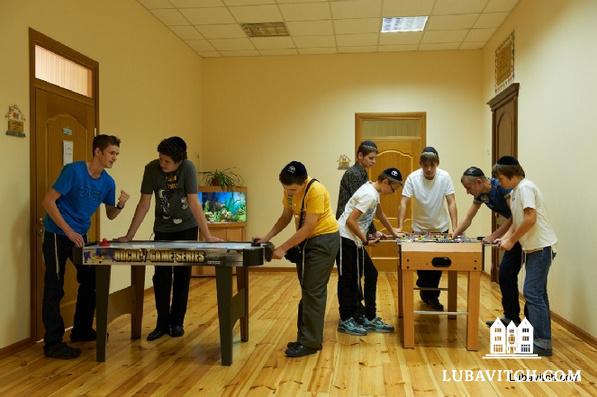
Some, like Anya, come with significant mental and social disorders. It is possible that Anya may have been born with fetal alcohol syndrome (FAS), a common and devastating condition caused by a mother’s drinking throughout pregnancy. Working closely with trained professionals, Chabad’s staff slowly nurtured Anya’s development. For years, she clung to every adult who cared for her, calling each one “Mommy.” Indeed, says Chaya, the most difficult part of her job is listening to the babies and toddlers cry for their mothers from their neat row of cribs. “They call all of their caretakers Mama,” she continues. “It breaks my heart.”
In Dnepropetrovsk, Glick says they have also hosted multiple children who suffered from FAS, and that they have been able to address the related issues with varying degrees of success. “While we do everything we can, we do not currently have the infrastructure to care for children with severe disabilities or special needs.” In cases that are beyond their orphanages’ capability, Chabad emissaries work with charitable agencies to facilitate the children’s transfer to institutions in Israel that have the resources to help them.
Teenagers present a greater challenge. Bukiet, who regularly deals with delinquents who steal, lie and hit says that by the time they arrive at Zhitomir’s orphanage, “they’ve endured terrible circumstances and have grown into troubled habits.” She sees 10-year-olds who are addicted to alcohol, 12-year-olds living promiscuously. Zhitomir is known for taking on some of the most difficult cases, accepting children from other Chabad and non-Chabad orphanages, and Bukiet acknowledges that they are usually the child’s last chance. The orphanage works on eliminating addictions, allowing children positive outlets like sports to relieve their aggression and teaching them the basics of socially accepted behaviors.
But, as Chaya admits, “sometimes no matter what we do, the child will not be helped. Nothing is simple for them. They are all survivors.”
One Step Forward, Two Steps Back
The goal post set by all the Chabad directors is to prepare the children for independent lives beyond the orphanage. Research has shown that children who grow up in foster care and orphanages have difficulty taking responsibility for their own lives. They feel that others should do things for them. Bukiet says that Alumim staff try to empower the children with specially-tailored educational programs, and notes that even simple things like a chore roster or giving the orphans roles of responsibility in the community help children gain a sense of control over their own life. “There is no one hundred percent success, but we see improvement,” she explains. “There are still kids who come back to us years later and need help or have taken steps backward.”
In some cases, there’s little anyone can do to take people off the streets. A ninth grade boy in the Odessa orphanage told Chaya about his nineteen-year-old sister, Nadia, who was left on the streets with her baby, after her husband began a prison sentence. Chabad administrators quickly located the young woman and her nine-month-old daughter, Sarah, and provided her with room and board at Mishpacha. “Nadia had agreed to work in the kitchen and we would provide for all of her and Sarah’s needs.”
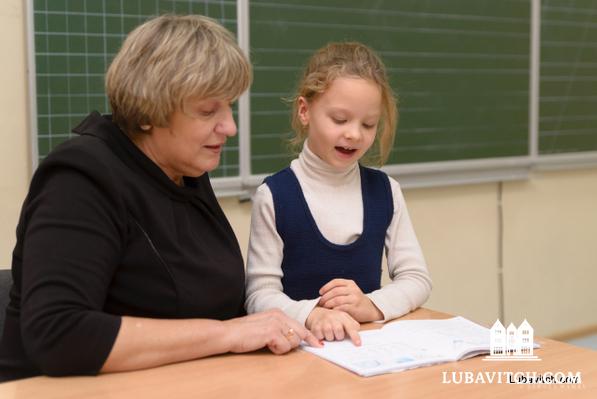
But Nadia was an alcoholic. Two months after she arrived, she decided that life in the orphanage was too constraining and she wanted to leave. “It was midnight in the dead of winter and she had nowhere to go,” says Chaya. “She had no food or a coat or even clothes for the baby, so our counselors tried to convince her to stay.” She agreed to stay till morning, and when the sun rose, the orphanage staff bought her a train ticket to Kherson, where her mother lived, packed her some food and clothes and sent her on her way.
Eleven months later, Chaya received a call from a women’s shelter. A homeless Nadia had just given birth to a baby boy and the local authorities wanted to place him and Sarah in a government orphanage. Chaya agreed to take all custodial responsibilities for the children and welcomed Nadia back with open arms.
“This time, she promised to work with us,” the director says. “She had a designated social worker who helped her. We enrolled her in a local trade school and offered her career counseling.” After two months, Nadia announced that she had to travel for one week to take care of government paperwork. Sarah and eight-week-old Avraham were left in Chabad’s care.
When the young mother showed up disheveled six months later, Chaya and others tried to convince her to go into rehab. Nadia refused and left once again soon after. A few months later, a birth center called Chabad to let them know that Nadia had another baby. This time she did not even bother to come in person, and the newborn boy was picked up directly from the birth center by a Chabad staffer who brought him to the orphanage.
This past September, Sarah, dressed in a uniform freshly pressed by her favorite dorm mother, started first grade. Avraham, now three years-old, and his two-year old brother Levi, are thriving in Chabad’s nursery. Levi has never met his mother.
On to a Better Life
In June 2016, ten years after he was first brought into the Chabad orphanage from the hospital ward, Vitaliy graduated high school in Odessa. Upon graduation, he decided to make aliya and start a new life in Israel, like numerous other alumni of Chabad orphanages. Dozens of others go on to universities in Moscow or Kiev, and still others make the transition to prominent yeshivas or seminaries in large Jewish communities overseas.
Bukiet says it is satisfying to see graduates integrate into everyday Israeli society, but notes that oftentimes the orphanage directors receive “no feedback” from their graduates and have no knowledge of their status or well being.
“Every year, when each of our children graduates, it is a struggle to guide them through the next steps of their lives,” says Glick. Some use the newfound freedom to relapse, but a solid eighty percent of orphanage graduates go on to become independent and healthy individuals in normative society. Odessa boasts its own accredited Jewish University that matriculates any orphan graduate who wishes to continue his or her education. In Dnepropetrovsk, many choose to stay and take advantage of the local Jewish community’s robust infrastructure. When couples get married, Glick says, the Jewish community raises money to pay for the wedding and to get the young couple on their feet. “Our relationship doesn’t end because they are now adults,” he continues. “We always try to act as a safety net of sorts.”
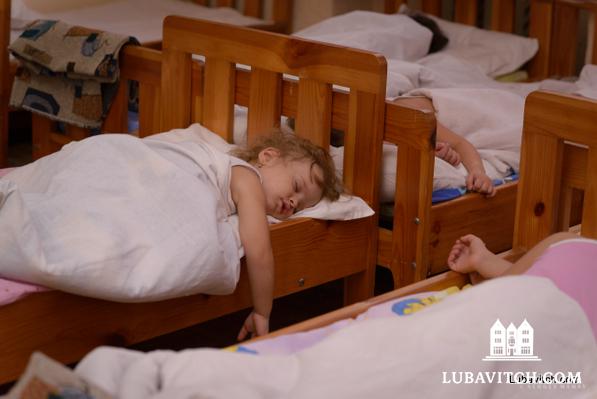
Hana from Pervomaisk in the Nykolaiv region, lived at Mishpacha for two years before going on to Chabad of Odessa’s college, where she is studying finance and economics. Despite her short tenure, the 19-year-old, who declined to discuss her background, says that her experience in the orphanage continues to help her “in all areas of life. “Even the smallest communication I had with people there had a great influence on me in general.” She hopes to use the tools she’s gained to build a better future. “I want to connect my future life with this community.”
When he finished eleventh grade—the last year of high school in Ukraine—Elosha moved to Israel and decided to join the IDF. Chabad worked with a high school in northern Israel to transfer David, who was in ninth grade at the time, so that he would not have to be separated from his only brother. Today, Elosha works in advanced computer programming in Haifa. David, who recently completed his own IDF service, works as a freelance photographer. Every summer they return to Ukraine, where they reconnect with the Chabad community that raised them.
Recently, one orphanage alumna approached Bukiet. Basya had graduated nearly four years ago, was established in her career and was now married. She was about to have her first child and couldn’t wait to share her milestone with the Chabad staff who had raised her. “I suddenly understood that you are really my true family,” Basya told Bukiet. “You always told me that, but not until now did I realize that even though it has been years since I lived in the dorm, whenever I need help or want to share good news or anything, this is where I come. I don’t have any parents or anyone else – you are my family. This is my home.”
Update: Shortly after this article was published, the Mishpacha orphanage in Odessa moved into a brand new center. The reconstructed 4-story building hosts a dormitory for the home’s 52 girls on the upper floor, while the other three floors are used for the Jewish elementary school of over 100 pupils, a kitchen & cafeteria complex, and a gym.
*The last names of children and parents involved with the orphanages have been omitted and some identifying details have been changed to protect their privacy.
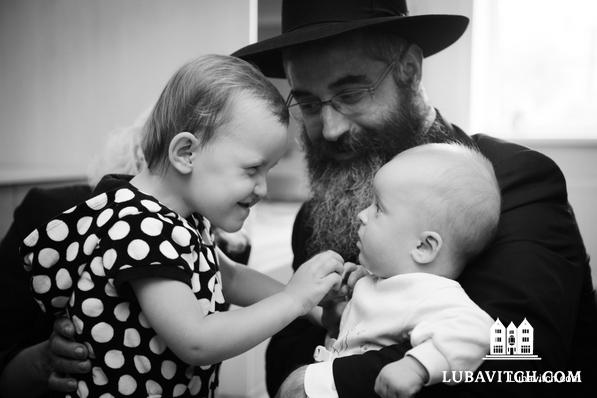
Be the first to write a comment.